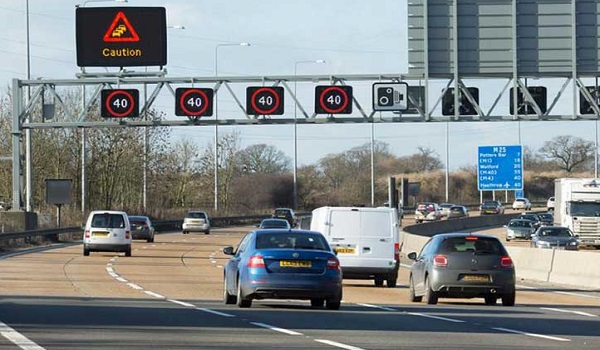Custody time limits extended to assist criminal courts coronavirus recovery plan
People arrested for serious crimes are set to spending longer in custody awaiting trial under new government measures to keep the public safe while courts recover from the coronavirus pandemic.
Under temporary legislation announced today (September 6) the period of time that accused persons can be held before a trial – known as the Custody Time Limit – will be increased from 182 days to 238 days.
The move is primarily targeted at violent offenders, those accused of sexual crimes and cases where there is a risk defendants may abscond or commit further offences if they are released on bail. Cases of domestic abuse and child protection will also be prioritised.
It is part of a package of measures that seeks to address the delays to jury trials that have been caused by the pandemic. The coronavirus lockdown temporarily halted all jury trials in March and despite the Government creating a series of temporary ‘Nightingale Courts’ to expand capacity, there are more than 500,000 cases yet to be heard in magistrates’ and Crown Courts, an increase of about 100,000 on pre-pandemic levels.
A statement released by the Ministry of Justice said: “While the number of outstanding Crown Court cases reached a ten-year low in 2019, the impact of social distancing during the pandemic means courts cannot currently hear the volume of cases required to reduce the backlog.
“Under the plan, a range of measures will be deployed to meet this unprecedented challenge. These will include employing 1,600 new staff to support the recovery; setting up more temporary ‘Nightingale Courts’; a further rollout of technology; and changes to the physical set-up of courtrooms to minimise risk, such as the introduction of plexiglass barriers.”
The transparent barriers will be used to separate jury members, allowing them to sit more closely together, so that more courtrooms may be used safely. They are currently being installed in 160 courtrooms and 80 jury deliberation rooms across England and Wales.
An additional eight Nightingale Courts, confirmed today, will follow an initial ten unveiled earlier this summer. The temporary sites have been rapidly set up to provide extra capacity for more cases to be heard, adding a further 16 courtrooms.
Meanwhile, ‘Covid operating hours’ are being piloted in Liverpool Crown Court. Two lists are operating in one courtroom – one in the morning from 9am to 1pm, and a second in the afternoon from 2pm to 6pm. This temporary proposal is being evaluated, with further pilots scheduled to begin in Hull, Stafford, Cardiff, Snaresbrook, Portsmouth and Reading in the coming weeks.
A major £142 million investment across the courts system has also been announced to speed up technological improvements and modernise courtrooms.
The Lord Chancellor, Robert Buckland QC MP, said: “Throughout the pandemic this Government has taken the necessary steps to protect the public while ensuring that justice continues to be delivered.
“This temporary extension to custody time limits will keep victims and the public safe, and we should not apologise for making that our priority. At the same time, the measures I have announced today will get the criminal courts system back to where it needs to be – reducing delays and delivering speedier justice for all.”
In welcoming the recovery plan, the Lord Chief Justice of England and Wales, The Lord Burnett of Maldon said: “The pandemic has had an adverse impact on the timeliness of the criminal justice system, with many trials necessarily delayed. This plan is an important document which gives a clear path towards recovery as the judges and magistrates, in partnership with HM Courts Service, the Ministry of Justice and many others, strive to ensure that cases are heard as soon as possible in the public interest and the interests of all those involved in the criminal process.”
The new legislation is expected to come into force on September 28 and will apply to anyone who is arrested and remanded for an offence deemed serious enough for a Crown Court trial after that date. The new custody time limits will remain in place for nine months. After which, current time lengths will resume.
The Association of Police and Crime Commissioners (APCC) welcomed the recovery plan but remained concerned at the “significant implications” of the court backlogs on victims and public confidence.
APCC justice leads David Lloyd and Sue Mountstevens said: “Since the beginning of the pandemic, police and crime commissioners (PCCs) have been working closely with government, HM Courts and Tribunals Service and with local criminal justice partners to address what is the most serious crisis to have faced our criminal justice system for many years. Both as chairs of local criminal justice boards and as local commissioners of support services to victims, PCCs remain concerned about the significant implications of the court backlogs on victims and on public confidence more widely.
“PCCs see it as an absolute priority to work with government and local partners to address the backlog. Justice delayed is justice denied and we must ensure that victims are able to access justice in a swift and timely manner.”
They added: “We are concerned that there was a significant backlog even before the pandemic, particularly in the Crown Court, and that this backlog will increasingly contain a disproportionate number of the most complex and serious trial cases as long as restrictions are needed due to the Covid-19 backlog.
“We believe that more needs to be done, at pace, to address the backlog and that many of the solutions sit locally.
“As local criminal justice leaders, PCCs are seeking maximum local flexibility to allow them, working with local partners, to develop and deliver innovative solutions on the ground to help the criminal justice system (CJS) to recover from one of the biggest challenges it has faced and deliver justice for victims and the wider public, with a CJS that everyone can have confidence in.”







